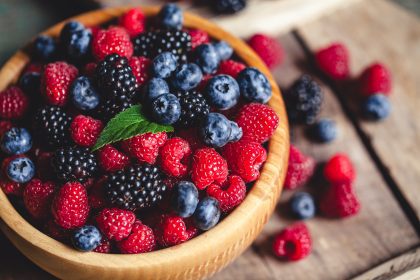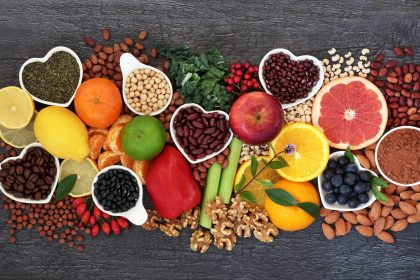After age 30, our body’s natural collagen production begins to decline, leading to visible signs of aging. While this process is natural, certain foods can help maintain and support collagen production, keeping skin vibrant and resilient. Understanding how nutrition affects collagen can help us make informed choices for better skin health.
Understanding collagen’s role
Collagen serves as our body’s natural scaffolding, providing structure and elasticity to skin, tendons, muscles, and bones. Around age 30, several factors begin affecting collagen levels:
- Natural production slows significantly
- Environmental factors accelerate breakdown
- Hormonal changes affect skin resilience
- UV exposure damages existing collagen
This decline makes proper nutrition increasingly important for maintaining skin health and appearance.
Essential nutrients for collagen production
Four key nutrients play vital roles in natural collagen synthesis:
Vitamin C
This powerful antioxidant is crucial for collagen formation. It protects skin cells from damage while supporting the production of new collagen fibers. Found abundantly in citrus fruits and leafy greens, vitamin C helps maintain skin firmness and elasticity.
Amino acids
These protein building blocks, especially glycine, proline, and hydroxyproline, form the foundation of collagen molecules. Foods rich in these amino acids directly support your body’s ability to create and maintain collagen structures.
Minerals
Copper and zinc serve as essential catalysts for collagen formation. These minerals activate proteins necessary for collagen synthesis and help protect existing collagen from damage.
Antioxidants
These protective compounds shield collagen fibers from environmental damage, helping maintain skin structure and resilience over time.
Top collagen-boosting foods
Bone broth
Nature’s richest source of dietary collagen, bone broth provides readily available proteins and amino acids. Regular consumption supports skin elasticity and firmness. Simmer animal bones for 12-24 hours to extract maximum benefits.
Citrus fruits
Oranges, lemons, and grapefruits deliver high amounts of vitamin C, crucial for collagen synthesis. Their antioxidants also protect existing collagen from breakdown, helping maintain skin structure.
Dark leafy greens
Spinach, kale, and Swiss chard offer both vitamin C and chlorophyll, supporting collagen production while protecting skin from oxidative stress. These nutrients work together to maintain skin hydration and elasticity.
Berries
Strawberries, blueberries, and blackberries contain powerful antioxidants that protect collagen fibers from damage. Their vitamin C content also supports new collagen formation, helping maintain skin firmness.
Fish and shellfish
Fatty fish provide omega-3s and protein structures that support collagen production. Shellfish offer zinc, essential for collagen synthesis. Include salmon, mackerel, sardines, and oysters in your diet for maximum benefits.
Supporting nutrients through daily choices
Morning boost
Start your day with vitamin C-rich fruits and protein-packed eggs to support collagen production throughout the day.
Midday maintenance
Include leafy greens and fatty fish in lunch to provide essential minerals and amino acids.
Evening repair
Enjoy bone broth or collagen-rich foods at dinner to support overnight skin repair and regeneration.
Lifestyle factors affecting collagen
Diet works best when supported by positive lifestyle choices:
Maintain proper hydration for optimal collagen formation Protect skin from excessive sun exposure Limit sugar intake to prevent collagen damage Get adequate sleep to support skin repair
Creating lasting change
Consistency matters more than quick fixes when it comes to supporting collagen production. While individual results vary, most people notice improvements in skin texture and resilience within 4-6 weeks of making dietary changes.
Focus on incorporating these foods regularly rather than sporadically. Create balanced meals that combine multiple collagen-supporting nutrients for maximum benefit.
Moving forward
Supporting collagen production through diet becomes increasingly important after 30, but it doesn’t have to be complicated. Focus on incorporating a variety of nutrient-rich foods while maintaining healthy lifestyle habits.
Remember that small, consistent changes often yield the best results. Start by adding one or two collagen-supporting foods to your daily routine, gradually building a comprehensive approach to skin health through nutrition.
This story was created using AI technology.















